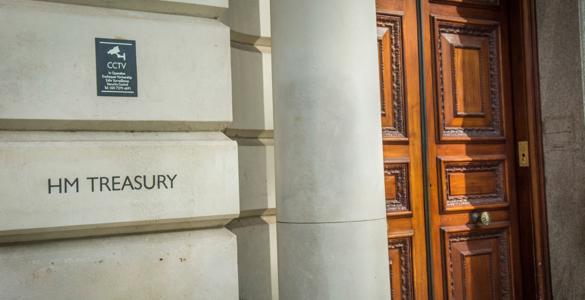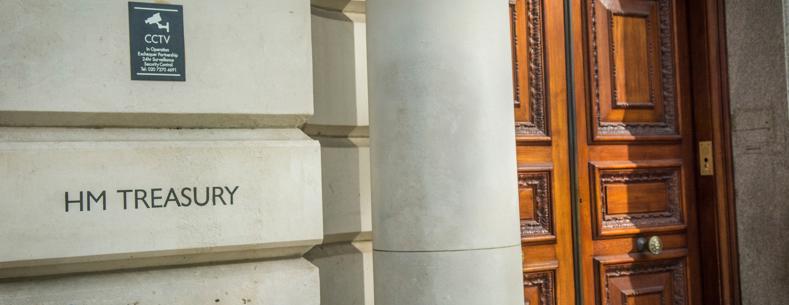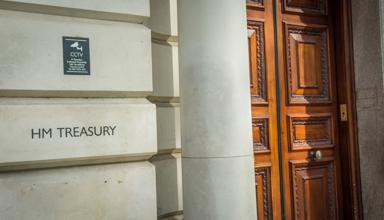The Welsh Government publishes a budget annually, but it doesn’t do this in isolation. Rules around what the Welsh Government can do with its budget are set out in a ‘fiscal framework’, which outlines limits for borrowing and reserves, among other things. The amount of funding available to the Welsh Government is also dependent on decisions made by the UK Government.
With calls from both the Senedd Finance Committee and the Welsh Government for changes to the fiscal framework, and reviews of similar arrangements in Scotland and Northern Ireland completed, is it time for a change?
The Welsh Government will be holding a debate in the Senedd on 27 February 2024 to discuss budget flexibilities and the operation of the UK funding framework. In this article we cover some arising issues that relate to the UK budget process and Welsh fiscal framework.
The UK Government budget process
The UK Government usually delivers two ‘fiscal events’ each year: an Autumn Statement, normally in November, and a Spring Budget, with the next due to take place on 6 March 2024. These fiscal events set spending limits for UK Government departments and outline Barnett consequentials for devolved governments.
However, the Minister for Finance and Local Government, Rebecca Evans MS, has spoken about issues with late funding allocations being made to the Welsh Government close to the end of the financial year. Last year, she noted:
The year-end issues really need to be addressed in the sense that our budget often changes very late on in the year and there are some real limitations on carry-over, so it does potentially lead you to taking spending decisions at the end of the year that might not be the decisions that you would make if you had the ability to carry that funding over into the next financial year.
Uncertainty around budget allocations
So how does the uncertainty around funding from the UK Government impact the Welsh Government’s Budget? As well as the scheduling issues associated with the UK Budget process, in-year announcements and allocations can result in changes to the level of funding available to the Welsh Government. A recent example is the NHS pay deal for 2023-24. The Minister for Finance and Local Government, told the Finance Committee in June 2023:
…we're waiting to see how the UK Government has funded its NHS pay deal. […] Well, the latest we would find out about it would be in February of next year, so in the supplementary estimates, and that would be completely unacceptable, because, of course, it means that we're almost budgeting in the dark…
The Welsh Government plans to publish its Final Budget for 2024-25 on 27 February 2024. However, there is yet to be confirmation from the UK Government whether the Welsh Government will receive any funding consequentials arising from the NHS pay deal.
There have also been instances of the Welsh Government receiving unexpected funding allocations late in the budget process. This was most evident during the Covid pandemic. In March 2022, the Minister highlighted the difficulties of managing late funding allocations from the UK Government, saying:
So, every year, the Welsh Government and all devolved Governments receive an indication from HM Treasury of any changes to the in-year budgetary position that we should expect at the UK supplementary estimates. So, on 26 January, Treasury informed us that we could expect a further £178 million as a result of spending in England, and this then was on top of the £270 million that had been announced on 19 December to respond to the omicron variant.
The Minister further explained:
We were told that this funding wouldn't be able to [be] carried over into the next financial year. That was funding for Wales totalling £448 million, which is a significant amount of money late on in the financial year… So, I think that this speaks to the difficult parameters within which we have to operate and why it is so important that we keep pressing for further flexibilities.
Welsh Fiscal Framework
In December 2016, following agreement between the Welsh and UK Governments, the Welsh Fiscal Framework was published. It put in place funding arrangements for the Welsh Government and also provided additional borrowing powers and budget management tools. However, the framework has its limitations, which have been exacerbated by the long period of high inflation.
The framework allows the Welsh Government to borrow up to £1bn for capital purposes with an annual cap of £150m (which became the limit in 2019-20).
The Minister previously commented that the annual cap means borrowing powers aren’t fit for purpose.
The fiscal framework also created a Wales Reserve to allow the Welsh Government to carry a total of £350m across financial years. There are also annual drawdown limits of £125m for resource and £50m for capital. If the Welsh Government has more resource and capital in the reserve than the drawdown limit, it won’t be able to access all of its reserves in one year.
However, for 2023-24 the Chief Secretary to the Treasury has waived the drawdown limits, thereby allowing Welsh Government to “drawdown resource and capital up to the maximum amounts available in the Wales Reserve”.
The Finance Committee has also commented on reserves. It recommended in its Scrutiny of the Welsh Government Draft Budget 2023-24 report that:
… the Welsh Government calls on the UK Government to increase overall and annual limits for borrowing and reserves, at least in line with inflation, and that these limits should be reviewed regularly so as not to reduce its value in real terms over time.
What about other devolved administrations?
Both the UK and Scottish Governments agreed that Scotland’s fiscal framework would be reviewed following the UK and Scottish Parliament elections in 2020 and 2021 respectively.
A review of the Scottish fiscal framework was published in August 2023. Among other things, capital borrowing limits have been increased and the overall reserve limit being increased annually in line with inflation. Annual drawdown limits for the Scotland reserve were also abolished and a mechanism implemented to uprate the overall limit annually implemented.
The UK Government also confirmed a spending settlement for the restored Northern Ireland Executive in February 2024. The settlement increases Northern Ireland’s annual capital borrowing limit by 10% from 2024-25, which will then increase annually in line with inflation.
What next?
The fiscal framework agreement notes the framework should be subject to periodic review. The Minister has said:
The UK Government should apply the changes that it has made to the Scottish fiscal framework in relation to reserve and borrowing limits to Wales, giving us the same additional budgetary flexibility. This would index our borrowing and reserve limits to inflation, and abolish limits on our reserve draw-down.
The Welsh Government is keen for change, and similar points have been made by the Senedd’s Finance Committee. With the changes in funding arrangements elsewhere in the UK, is it time for Wales to follow, and what might that change look like?
You can tune into Senedd.tv on 27 February 2024 to watch the debate.
Article by Christian Tipples, Senedd Research, Welsh Parliament






